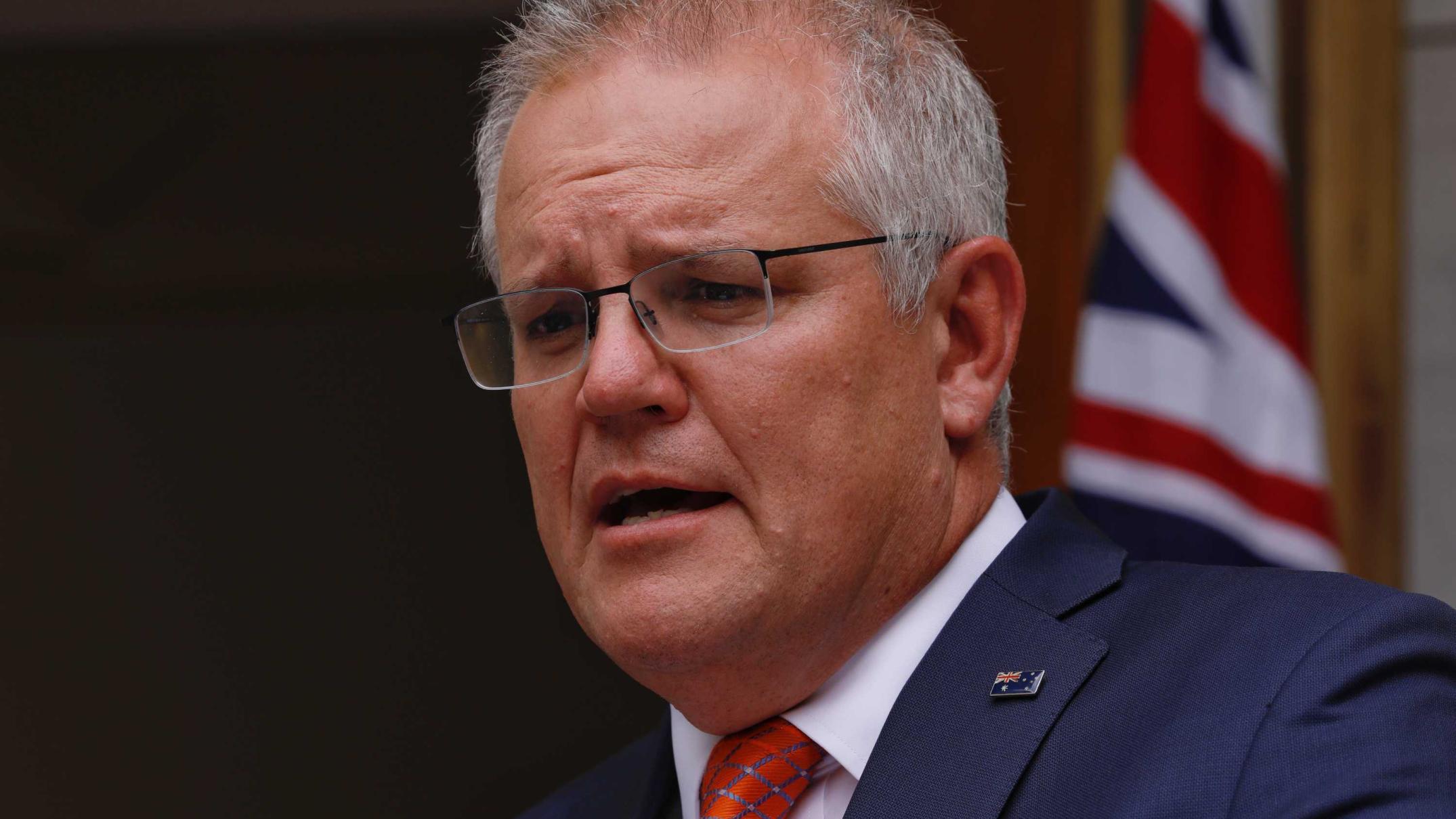In the past, Cabinet ministers resigned for everything from the trivial to the serious.
In 1984, Hawke Government Cabinet Minister Mick Young resigned when customs found an undeclared Paddington Bear in his wife’s suitcase.
But prime ministers have become increasingly reluctant to deliver what is known in politics as a “scalp” to the opposition.
Paul Keating famously refused to have his Health Minister Carmen Lawrence stand aside when the West Australian Liberal government called a royal commission, which investigated her role in the events leading to the suicide of a woman, Penny Easton, named in state parliament when Ms Lawrence was premier.
After losing a slew of ministers in a travel expenses scandal in 1997, John Howard fiercely resisted losing any more.
And Scott Morrison has stood by a number of his ministers — or promoted them — despite significant questions over their behaviour or management of their portfolios.
Now he faces a problem that really does threaten the reputation of the entire government: one of his ministers is alleged to have raped a 16-year-old girl in 1988.
On Monday, the Prime Minister said, “I had a discussion with the individual, who as I said absolutely rejects these allegations — and so after having spoken to the commissioner and the deputy secretary of my department there are no matters that require my immediate attention.”
Space to play or pause, M to mute, left and right arrows to seek, up and down arrows for volume.
Compare this with what the Prime Minister said in the wake of Brittany Higgins appearance on The Project two weeks ago.
“I have listened to Brittany. Jenny and I spoke last night, and she said to me, ‘You have to think about this as a father first. What would you want to happen if it were our girls?’
Space to play or pause, M to mute, left and right arrows to seek, up and down arrows for volume.
So what is the difference in the Prime Minister’s view of Brittany Higgins two weeks ago and the 16-year-old girl allegedly brutally assaulted in 1988?
Ms Higgins has a name, and a face.
That 16-year-old girl died last year as a 50-year-old woman. For both legal reasons and to protect her family, her name has not been spoken.
‘I believed her’
ABC News: Lincoln Rothall
)But a group of the woman’s friends from those days is now determined to speak in her name. One of them is Jo Dyer, now the director of Adelaide Writers Week.
“She was under no illusions about the difficulties that she would face if she sought to make a formal complaint against anyone of a crime … so far in the distant past,” Ms Dyer told 7.30.
“She had made a clear decision. She was able to articulate the reasons why she had taken that decision, which were to do with the fact that bearing the trauma had not worked for her. Life had been troubled as a result of that trauma, and she’s thought of no other way of getting past it than to ventilate it.”
Ms Dyer said the woman connected with her old friends in 2019, told them about the alleged assault all those years ago, and said she was going to make a complaint to police.
“I believed her from the very beginning,” Ms Dyer said.
“The detail that she recounted, the lucidity with which she recounted it, and the impact that it had had on her, all of these things persuaded me immediately that she was telling the truth.”
Yesterday, the New South Wales Police said they had closed their investigation into the allegation, saying there was “insufficient admissible evidence” to proceed.
However, the South Australian state coroner told 7.30 the “cause and circumstances of the death are under investigation by South Australian Police on behalf of, and at the direction of, the Coroner”.
Michael Bradley, the woman’s former lawyer, said the ball was now in the Prime Minister’s court.
“The appropriate course, in my view, would be a form of inquiry conducted externally and independently of government and parliament to inquire fully into the allegation and the surrounding circumstances and range a determination on the allegation,” Mr Bradley told 7.30.
“We have a publicly made allegation of serious criminality against a man who is occupying a senior position in the government. And that has to be addressed, as it would have to be addressed if he was in any other position of public trust, or in a prominent position in the corporate world or in an institution or in a sporting code.”
Former prime minister Malcolm Turnbull is among those calling for a coronial inquiry or an independent inquiry. Ms Dyer supports the calls.
“We’re here to speak for her because she can’t speak for herself,” she said.
“It’s wonderful to have young women with the strengths and the eloquence of Brittany Higgins who’s coming forward and saying, ‘I have been wronged and I am seeking justice.’
“They were the very words that my friend wanted herself to be able to say in a public forum. Sadly, she can’t.”
‘No one should accept this standard’
Ms Dyer said her friend was one of the most impressive people she knew at that time, an overachiever who was on a trajectory of achievements and success that her friends thought would carry her through her life.
“We all believe in a presumption of innocence. No one is suggesting that people should be thrown off, taken out and thrown into jail for no reason,” she said.
“What standard is OK for the Prime Minister to accept?
“Whether it’s our friend, or it’s Brittany, or if it’s another young woman whose life may not have soared in the way that we all assumed our friends would soar, no one should accept this standard anymore.”




